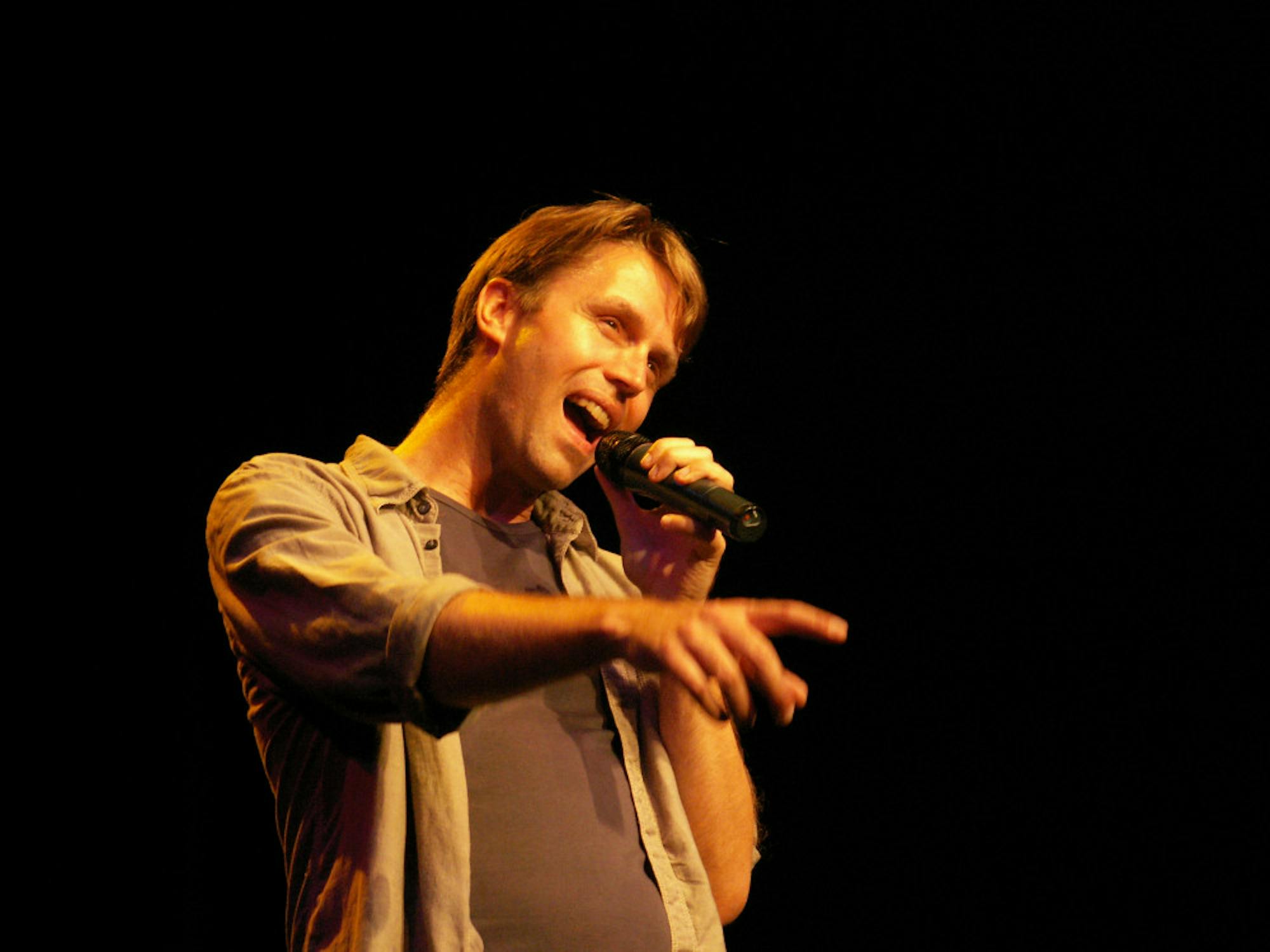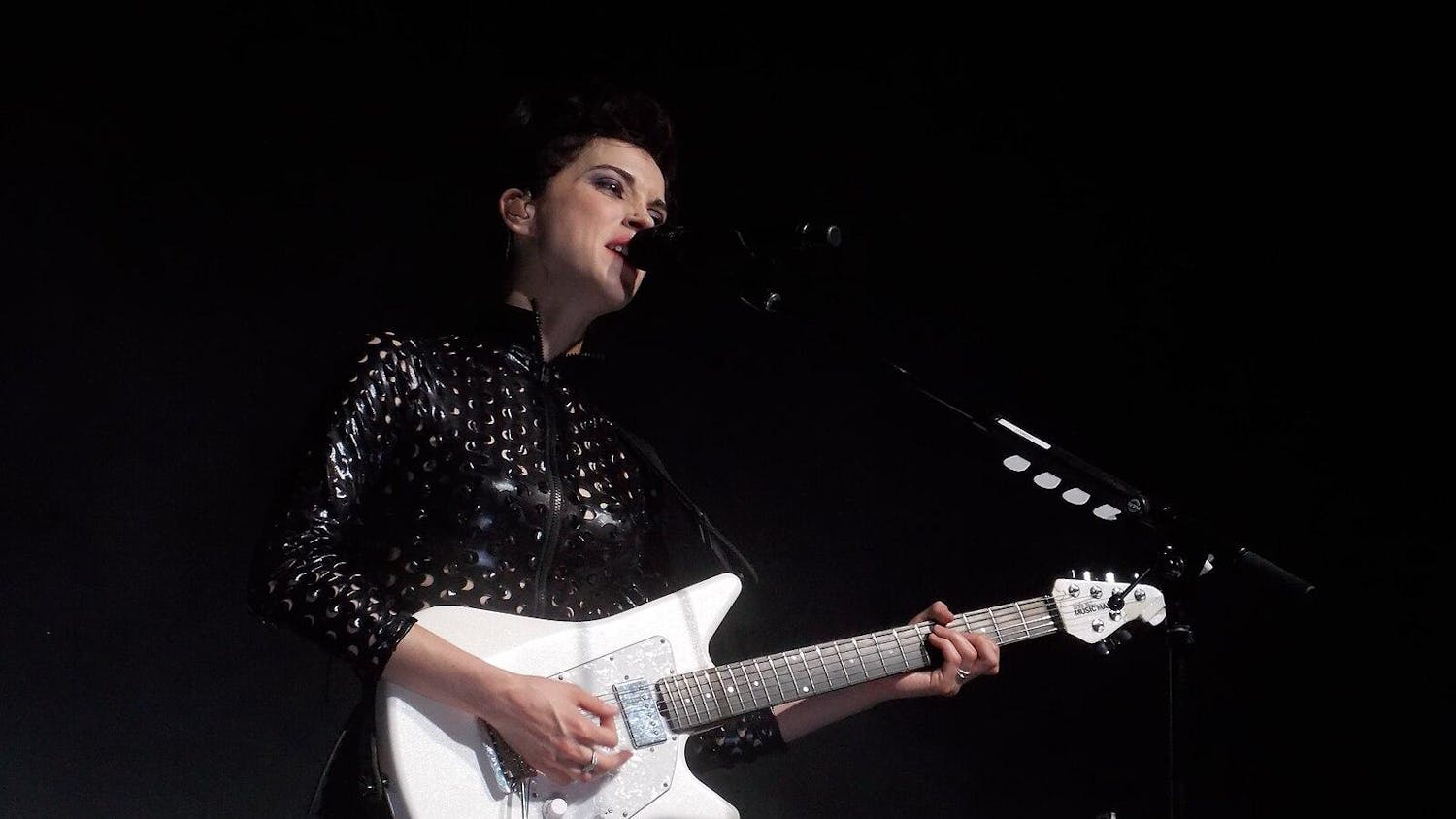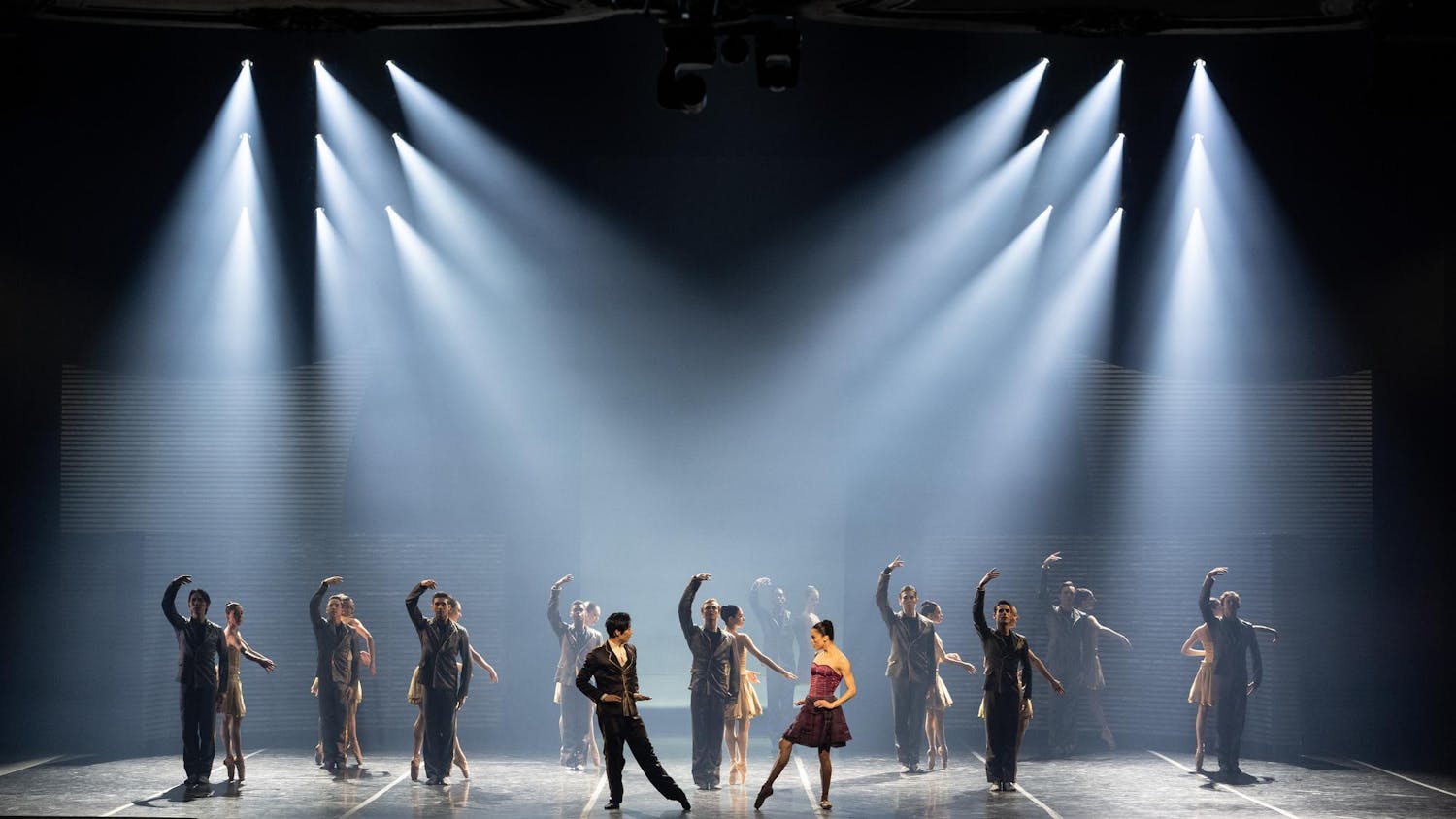Last week, Tufts hosted a cappella singer and music producer Deke Sharon (A '91), a Tufts alum and a former member of the Tufts Beelzebubs. While on campus, Sharon gave a lecture entitled “Harmony Through Harmony.” In addition, he participated in a concert with Tufts a cappella groups, teaching them his a cappella arrangements and performing with them onstage.
During his return to campus, Sharon sat down for an interview with the Daily to discuss his time at Tufts and his career path since graduating.
“I’m deeply honored to be invited back,” Sharon said. “For the most part I don’t get a chance to come back here, which is why it’s so overwhelming to see what’s happened with the Tufts music department. The building and the facilities are enormous — the department is maybe ten times the size it was when I was here. We used to just be in the basement of Cohen … it’s just unbelievable how much it’s expanded, [including] the fantastic classes.”
While at Tufts, Sharon was part of the New England Conservatory dual-degree program. Though he was training in music seriously, he also wanted to take advantage of the broader liberal arts education that the Tufts School of Arts and Sciences provided.
“Over at the New England Conservatory of Music,” he said. “I was in then what was third-stream studies, which is now called contemporary improvisation. And then about halfway through, after getting all this ear training, I wanted to get more and more information, so I shifted over to theory and composition department, and took all these graduate-degree courses. I just wanted to fill up my brain with information, and my instrument was jazz voice, so I took jazz voice lessons. At Tufts, I knew I was going to be a musician, but I wanted a really strong liberal arts education, broad and also deep. And I also knew I wanted to be a good father, so I was a child studies major.”
In addition to his academic studies, Sharon’s four years in the Tufts Beelzebubs had a huge impact on his experience as an undergraduate — even though he had to audition three times before they would finally accept him.
“It took me three times to audition for the 'Bubs because I was overzealous and they were a little freaked out by this kid who came in. In high school I was arranging, I had my own barbershop quartet that I started doing pop music for and learning how to arrange for, I had 'Bubs albums and I was a big fan. And this is at a time in the middle of the '80s when a cappella wasn’t big — I mean, there were only maybe 200 college a cappella groups, [so] people outside of it didn’t really know about it ... I think I just kind of weirded the 'Bubs out, I was so into it."
“Now, though,” Sharon said, “people will pick their college based on a cappella groups. But a large part of why I came to Tufts was to be in the 'Bubs. And once I was in the Beelzebubs, I was music director for a couple years, and I also created the position of historian, which involves understanding the history of what’s going on within the 'Bubs, and keeping all the music and the library together.”
While at Tufts, Sharon also began a newsletter to report on the happenings of the college a cappella world. This publication, he explained, was a crucial element in how he got started doing a cappella professionally.
“When I was in 112 Stratton, I started a newsletter to bring together the a cappella world, and by the time I’d put out only a couple issues, already fans [of] a cappella and professional groups were asking me, ‘Can you expand the scope?’ So I went from the collegiate a cappella news to the contemporary a cappella news, and as soon as I got home I filed the nonprofit paperwork and started the Contemporary A Cappella Society of America. And from there, festivals and workshops and a music publishing company [followed].”
One point of interest in Sharon’s career is his work on the "Pitch Perfect" movies (2012, 2015, 2017), where he was involved as an arranger, vocal producer and singer. But his journey toward the series began with his work with the Beelzebubs.
“There was a writer with GQ named Mickey Rapkin,” he said, “who actually sang in the Cornell Cayuga’s Waiters, and he decided to write a nonfiction book about the college a cappella world. So he followed three different groups, and one of the groups he followed was the Tufts Beelzebubs. So a third of the book is devoted to them, and there’s also a chapter that talks about the college a cappella world, and the ground that was laid for the style of music and the competition.” Sharon’s experiences in the Beelzebubs was featured in Rapkin’s book, entitled “Pitch Perfect: The Quest for Collegiate A Cappella Glory” (2009). Rapkin’s book would later be optioned to be made into a movie.
Sharon explained that he got a phone call from Elizabeth Banks asking if he would like to be involved in making "Pitch Perfect."
“I was one of the first people brought in, and we sat at a table and talked about what songs would make sense in the script that they were working on, and how do we keep it authentic and yet still compelling to audiences. And it was such a tiny movie studio that put it together … So I was pretty convinced that no one was gonna see this movie. I still bled for it — you know, lost sleep trying to make it the best it could be — but the fact that it became such a cultural touchstone is absolutely overwhelming.”
In addition to his work on the "Pitch Perfect” movies, Sharon also produced the NBC competition show “The Sing-Off” (2009–2014) and was on the Lifetime reality show “Pitch Slapped” (2016) as a coach. The show featured high school a cappella groups competing with each other.
“It was wonderful to have an opportunity to show the world what I do when I’m working with high-school students, and try to motivate them and teach them both technical proficiency, but also the ability to sing with emotion and make a real difference,” Sharon said.
Now, Sharon does just about everything a cappella-related. “I arrange, compose, direct, coach, educate, write ... I have over 1,000 published songs and another thousand custom arrangements that aren’t published yet. And I sing — I started the first rock band without instruments with a vocal percussionist … I end up going all over. I work with adults, I work with high school, college, middle school [students], anything and everything having to do with a cappella.”
A cappella personality Deke Sharon talks time at Tufts, beyond

Deke Sharon (A '91) is pictured singing at a performance.





